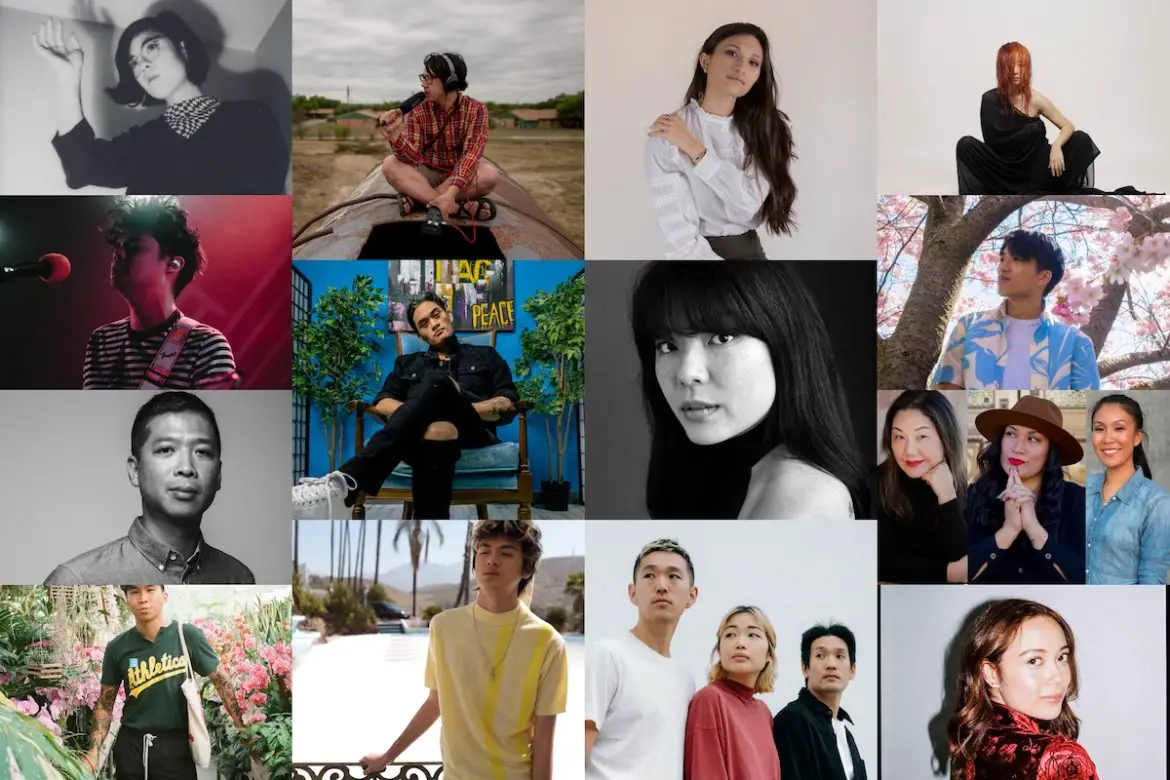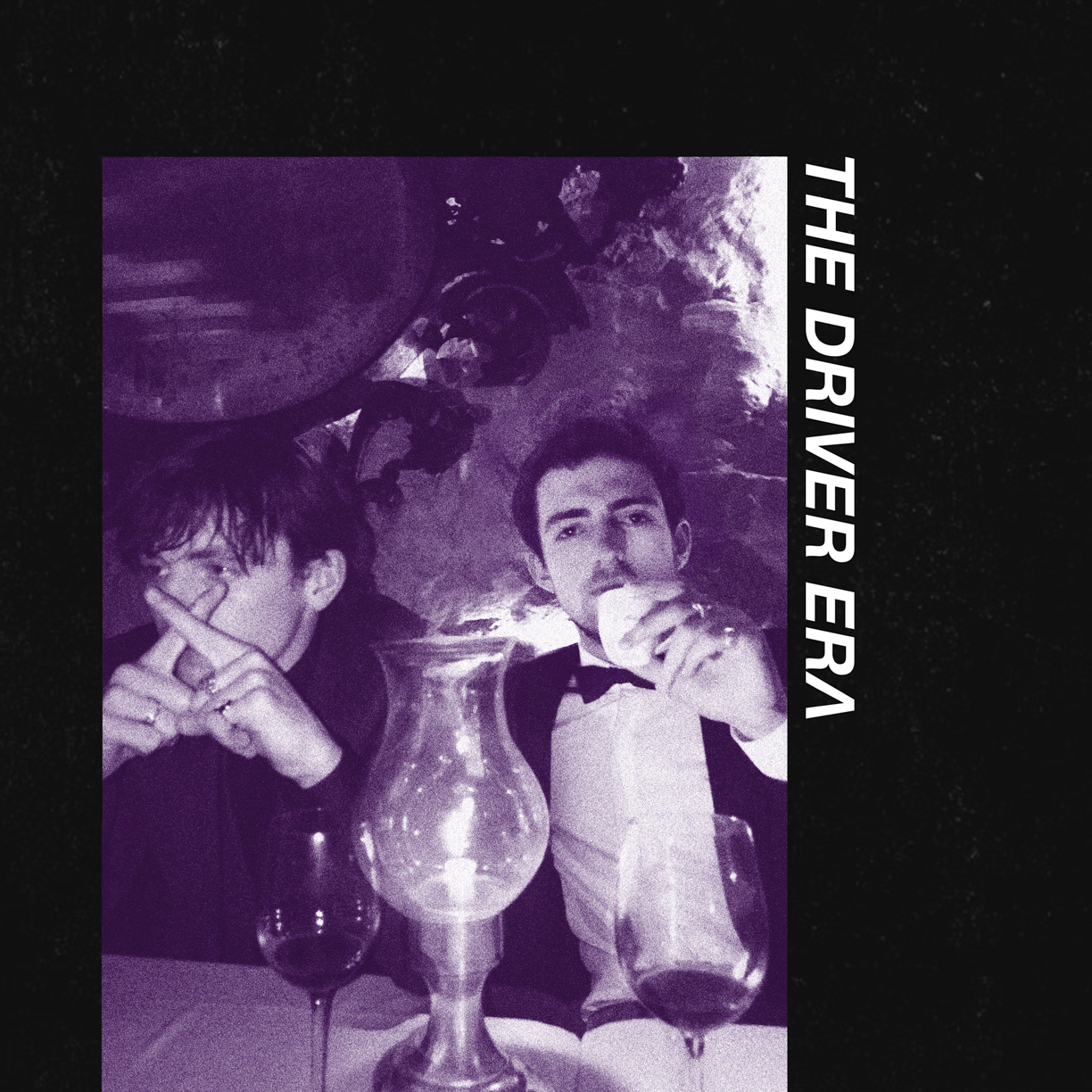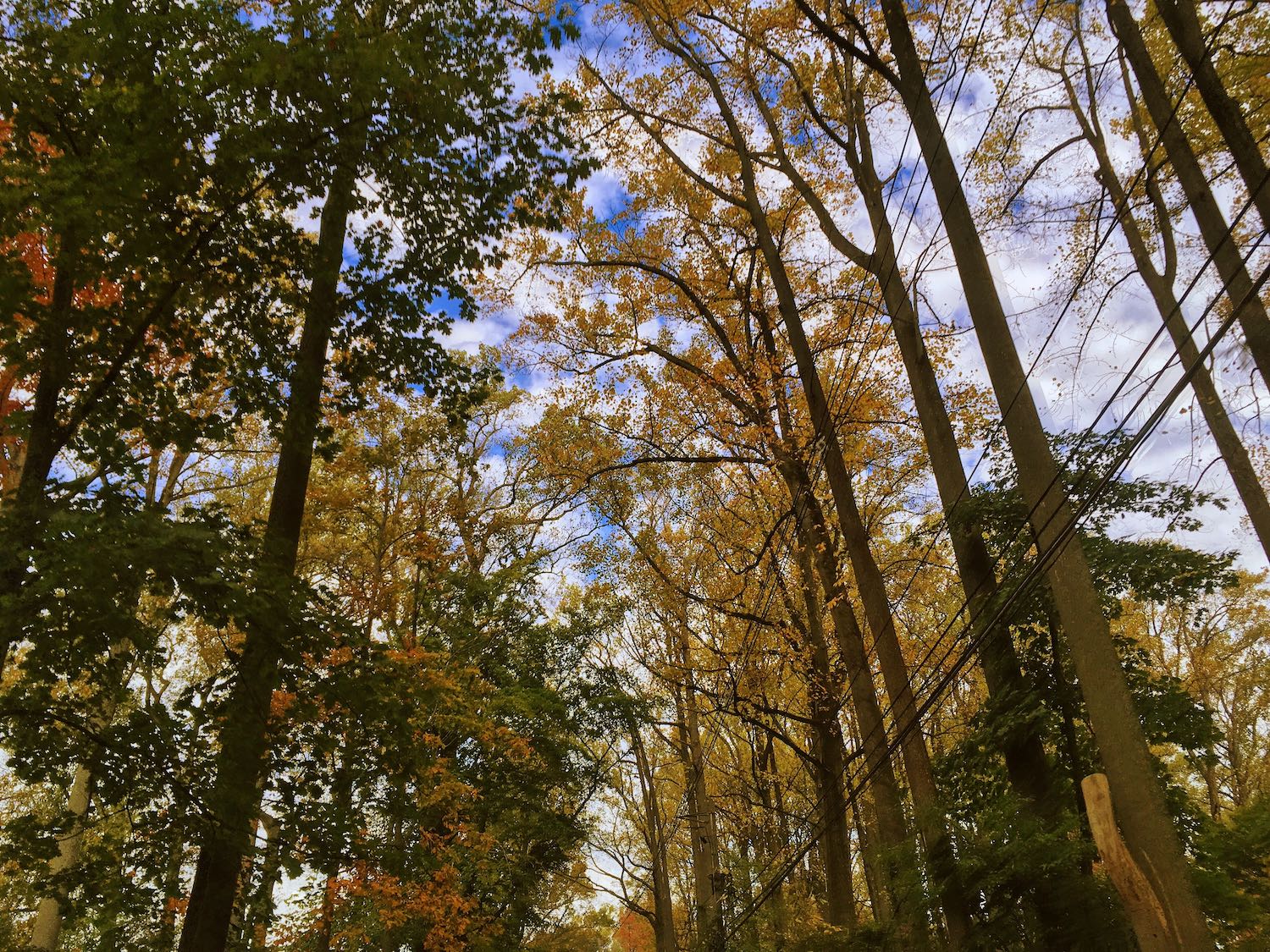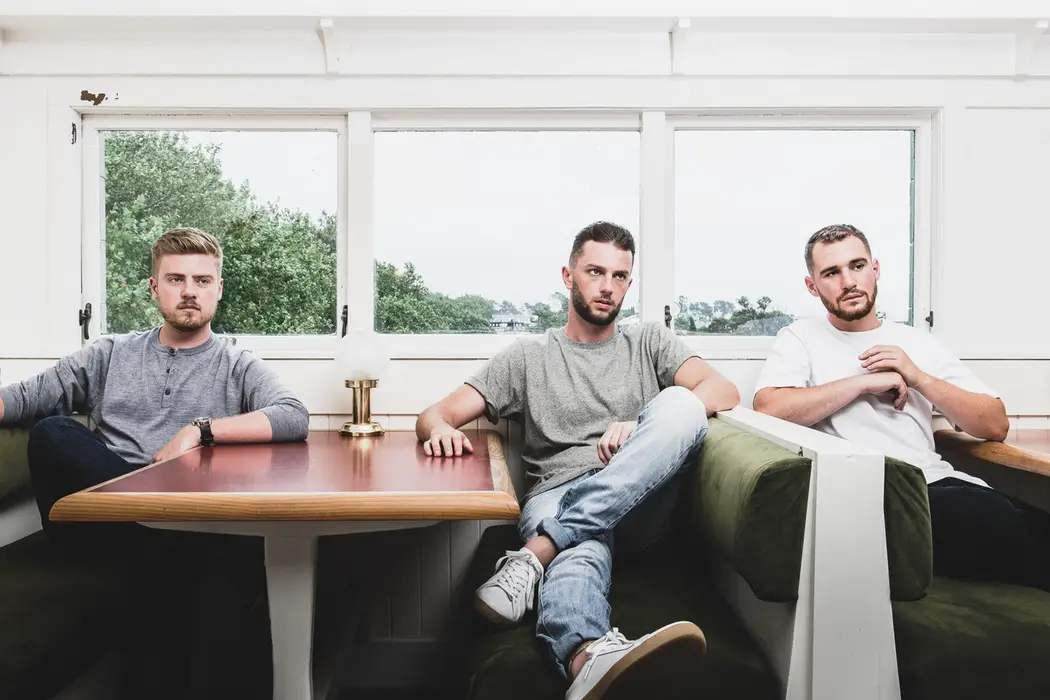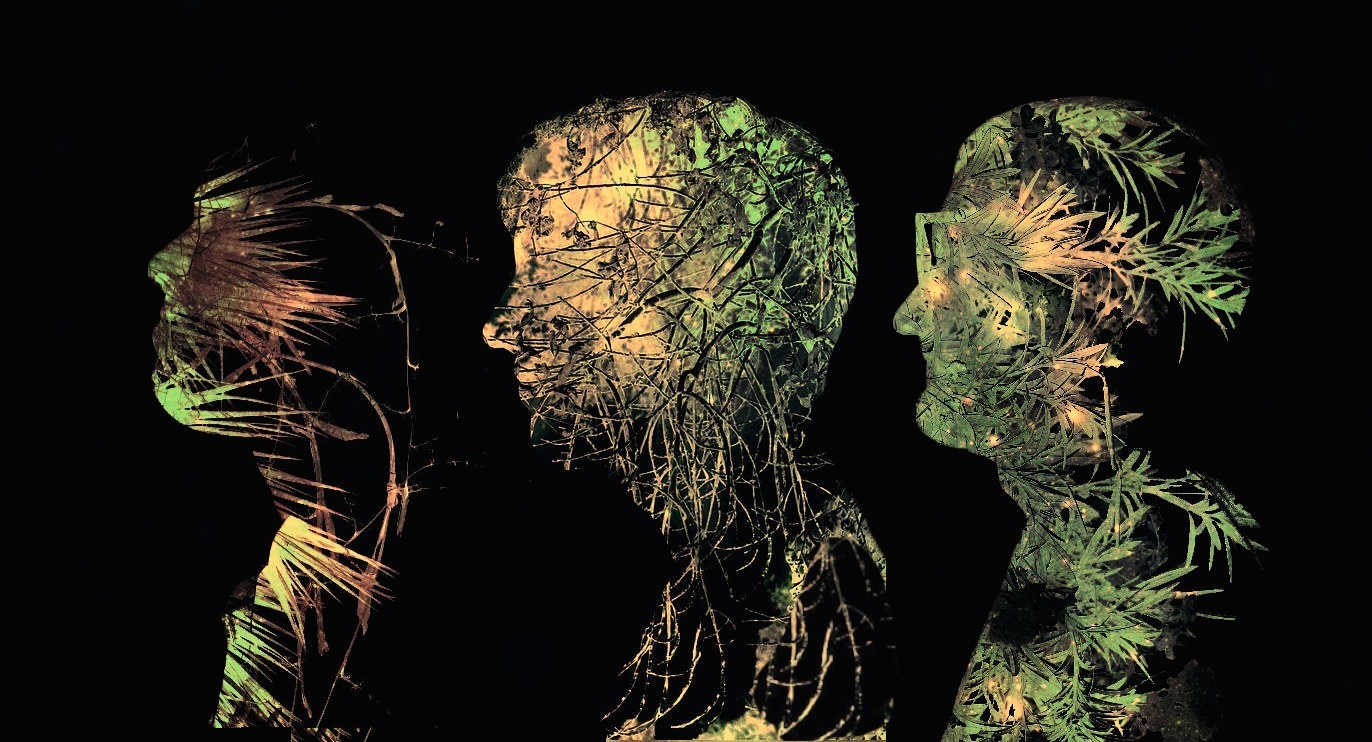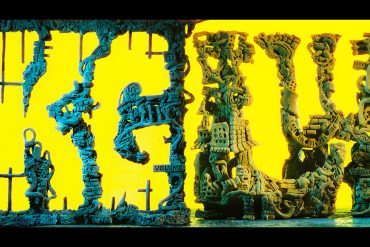In honor of Asian American and Pacific Islander (AAPI) Heritage Month, Atwood Magazine invited AAPI artists and music industry representatives from around the world to participate in an interview series reflecting on identity, music, culture, inclusion, and more. Today, and throughout the month of May, Atwood Magazine will be continuing those conversations in celebration of AAPI Heritage Month, engaging with artists and publicists alike to discuss the roles of heritage and representation in their own art, the state of the music industry, and its role in promoting diversity, visibility, equality, and more.
In Part V of our series, Atwood Magazine spoke with and highlighted 14 members in the industry, asking them to reflect on their own heritage, the relationship between music and identity, AAPI artist inspirations, and how we can challenge the music industry for better representation.
– Mitch Mosk, Editor-in-Chief
•• •• •• ••
featuring Asian American Collective, Laufey, Kris Chen, Peach Luffe, Jen Rim, Tim Atlas, Mindy, Darro, Alex Hwang, Lisa Sonoda, Yueku, Annie Scherer, Julian Saporiti (No-No Boy), and Warren Hue!
•• ••
:: Celebrating AAPI Heritage ::
 follow our AAPI Heritage Month playlist on Spotify
follow our AAPI Heritage Month playlist on Spotify 
:: Asian American Collective (Grace Lee, Zeena Koda, Caroline Yim) ::
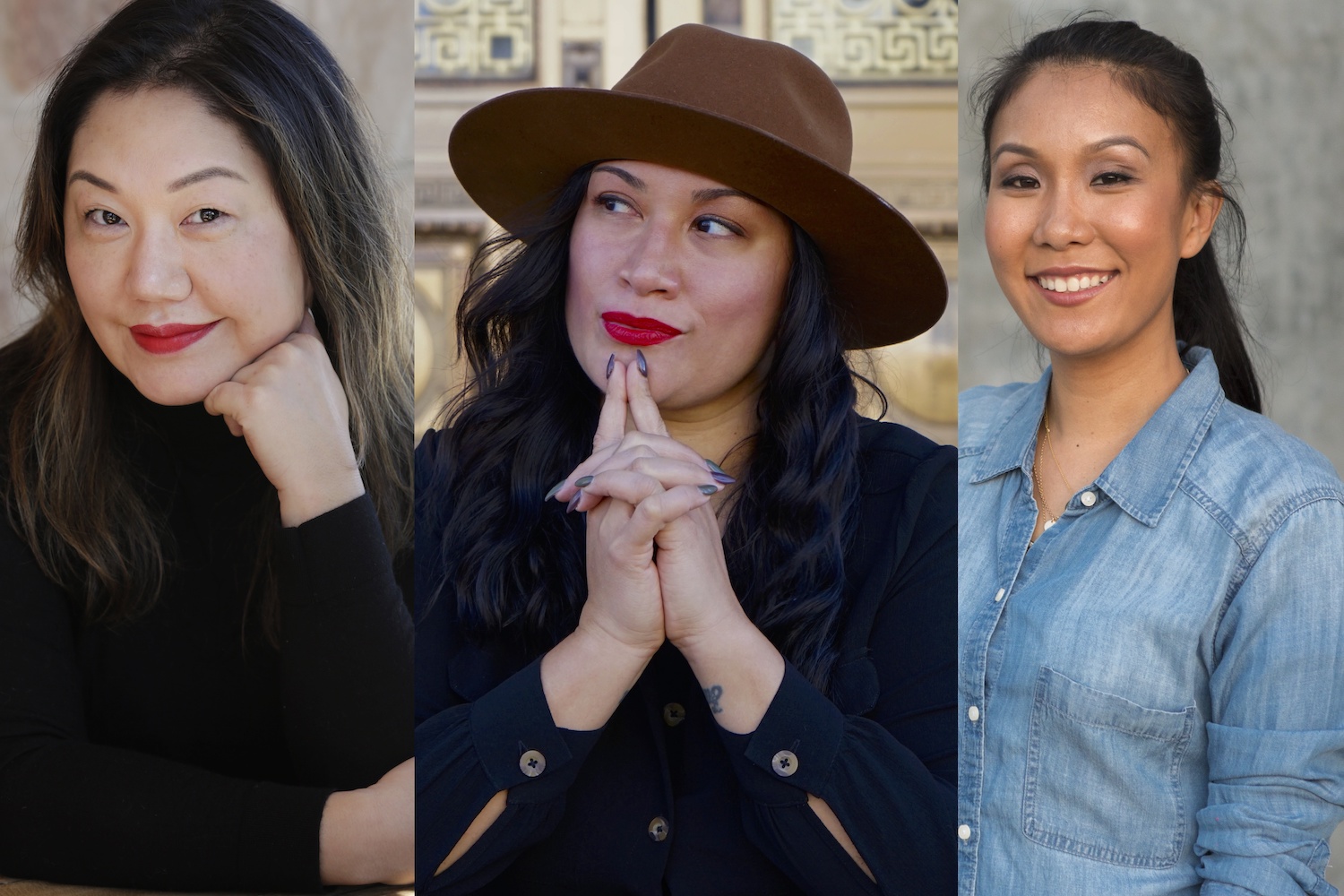
What is your heritage?
Grace – Korean, Caroline – Korean, Zeena – Filipino
What is the significance of Asian American and Pacific Islander Heritage Month, for you?
APAHM is a time when focus on celebrating the diversity of our community, the beauty of our cultures and all the STORIES. We’re excited to uplift stories from our members throughout the month.
How do you perceive or experience the relationship between music and your AAPI heritage and identity?
When we were coming up there weren’t too many Asian American artists in the mainstream, so one of the most exciting things we’re seeing now is so many Asian American artists following their passions and dreams and pursuing careers in music … and the diversity of talent is SO exciting.
How do you feel the music industry can improve, when it comes to representation, inclusion, and diversity?
There’s a lot of room for improvement, and one area we are focused on as an organization is building a healthy pipeline of next gen Asian American executives in music.
Name one or two AAPI artists who have had a significant impact on you, and why they've had that impact.
We’re excited about the future of artists from all across the Asian diaspora – we love Rina Sawyama, Griff, kasai, Priya Ragu, REI AMI, Deb Never, spill tab, Audrey Nuna, Japanese Breakfast, Blood Cultures, keshi… there are so many exciting new names and faces out there making really dope music and we’re psyched to champion them all!
Lastly, what are you working on currently? Anything coming down the pipeline you’re excited to share?
Our organization is still in its infancy and we’re so excited to develop more compelling programs and create opportunities for Asian Americans in all areas of the music business to connect and form strong business and personal relationships.
•• ••
:: Laufey ::
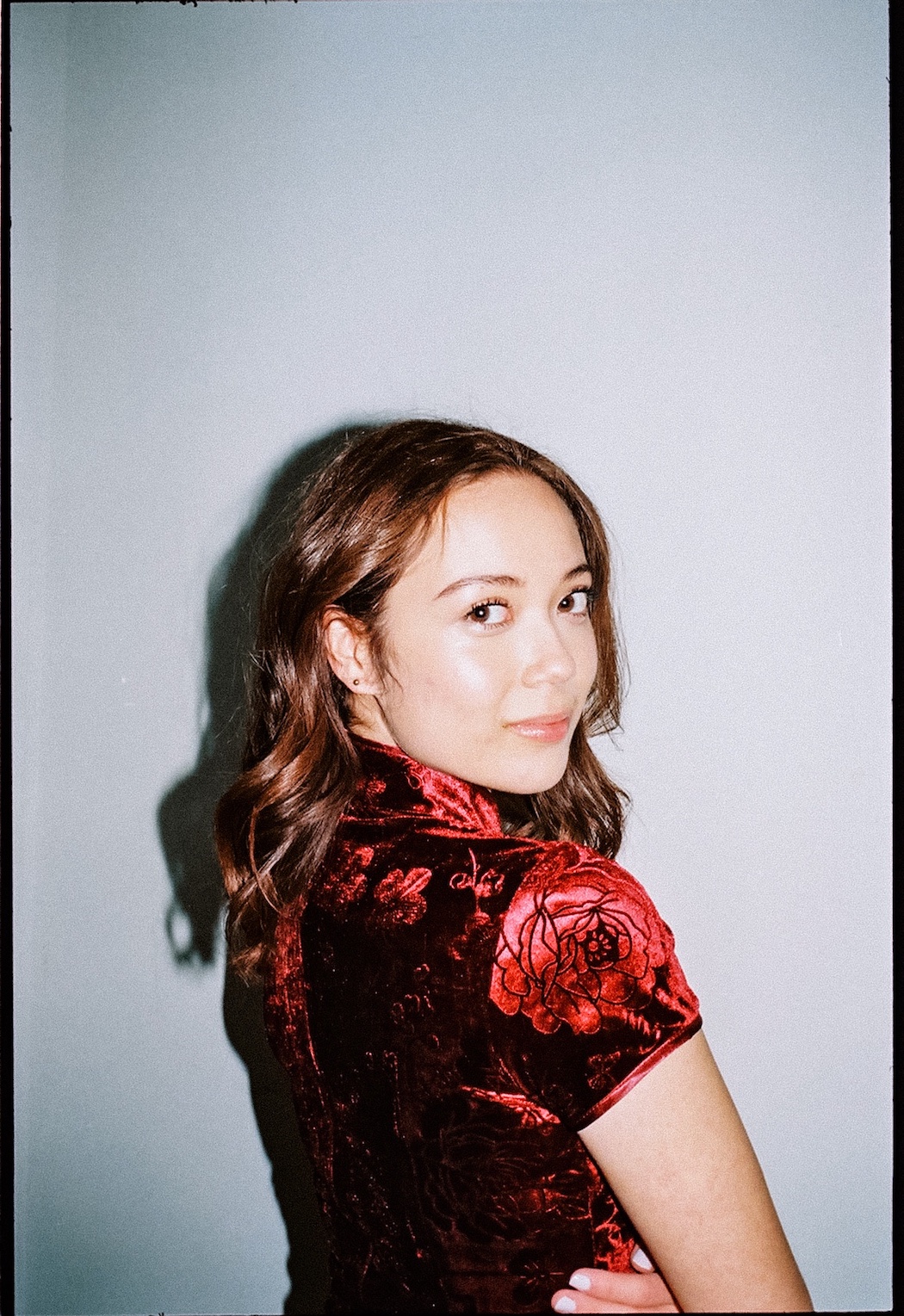
What is your heritage?
Chinese
What is the significance of Asian American and Pacific Islander Heritage Month, for you?
I was raised in a Chinese household and grew up surrounded by strong Asian women. AAPI heritage month is a time for me to especially celebrate the traditions and the culture that have shaped me into the person and musician that I am today.
How do you perceive or experience the relationship between music and your AAPI heritage and identity?
I feel that I owe a lot of my musicality to my Chinese heritage. My mother is a violinist and my grandparents were professors of violin and piano at the Central Conservatory in China. They taught me so much about music and life through Chinese tradition and instilled a great deal of discipline and appreciation for the art in me from a young age. It’s the reason I am a musician today and for that I am so so thankful!
How do you feel the music industry can improve, when it comes to representation, inclusion, and diversity?
There’s no question that the music industry lacks AAPI representation. I didn’t have any Asian role models in the pop music industry growing up and I remember simply thinking that it was something that Asian people didn’t participate in. I think that the first step is creating a space where AAPI musicians feel accepted and represented. I think it’s important to highlight the stories and musical visions of AAPI artists all year round.
Name one or two AAPI artists who have had a significant impact on you, and why they've had that impact.
Honestly, I can’t think of many outside of my mother and grandparents. Hopefully one day, I’ll serve as some sort of inspiration for young AAPI artists!
Lastly, what are you working on currently? Anything coming down the pipeline you’re excited to share?
I just released my debut EP, “Typical of Me”! I’m also currently hosting a radio show on the BBC called “Happy Harmonies” where I feature and talk about some of my favorite songs featuring vocal harmonies!
•• ••
:: Kris Chen ::
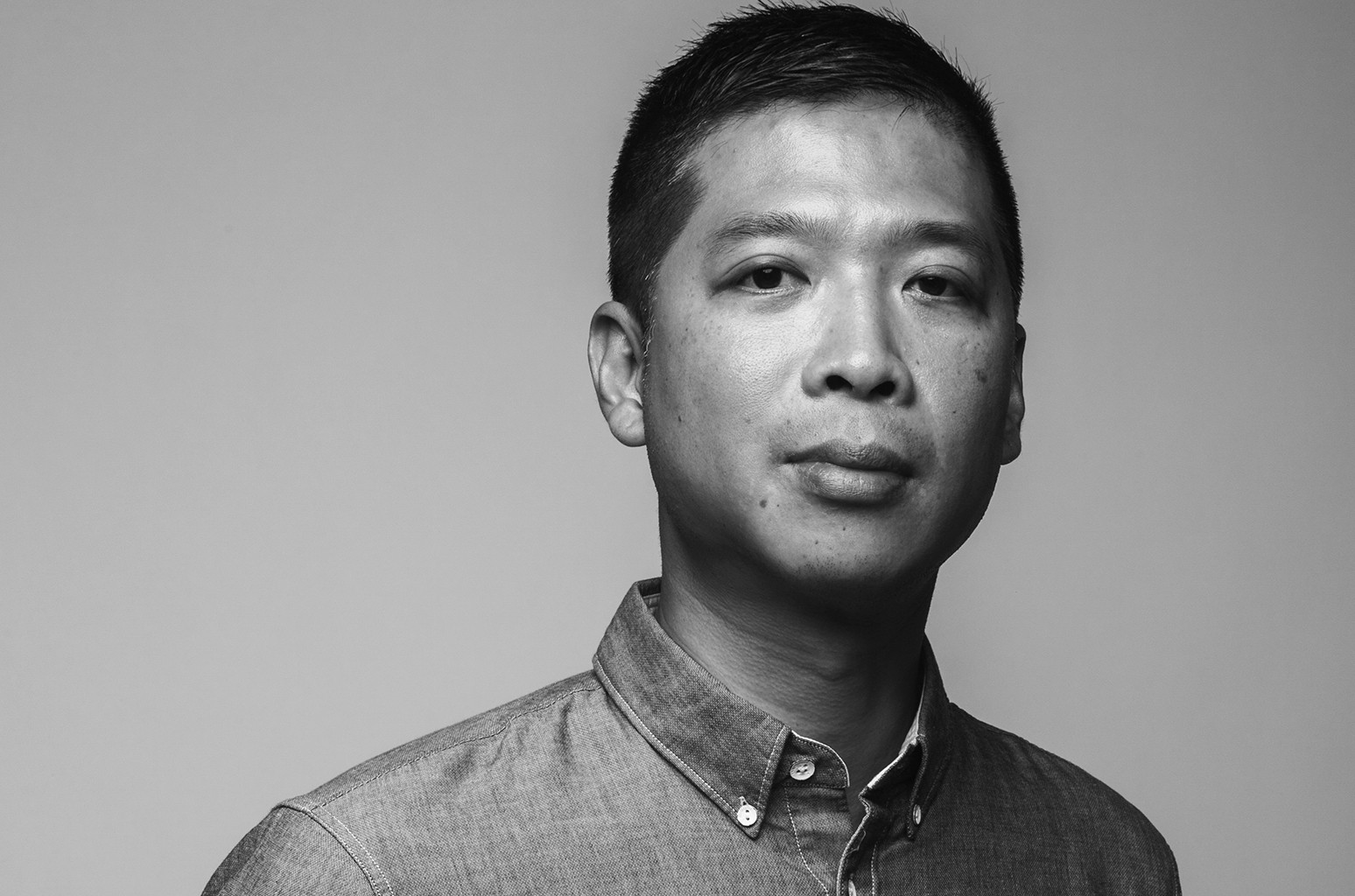
What is your heritage?
Taiwanese
What is the significance of Asian American and Pacific Islander Heritage Month, for you?
I think about Asian kids in this country who are still trying to figure out who they are, as is every young person. I want them to know they don’t need to be defined by anyone else and that if they’re not seen, they can find the voice to demand to be seen. I wish I had more awareness of Asian people involved with culture when I was a young person.
How do you perceive or experience the relationship between music and your AAPI heritage and identity?
From my teen years to young professional adult, I never felt like I fit in anywhere and was always a little bit of the odd man at a concert or record store, and later in life – an office. No one looked like me and I experienced hostility and othering, whether over the top or subtle. These things just forced me to double down and pour myself into the music I was hearing and the music I wanted to help artists create.
How do you feel the music industry can improve, when it comes to representation, inclusion, and diversity?
The music industry needs to step beyond token recognition of POC and invest in not just diversifying their hiring, but also how and where they search for interns. Not every kid who wants to intern has the luxury of going to college on their parents’ dime and free time to work a mostly unpaid job . Once those young people are part of the industry, any person in charge needs to have an honest look at the value that POC brings and ask themselves are they being given the same opportunities and compensation and voice as their white colleagues? Far too often the answer is no.
Name one or two AAPI artists who have had a significant impact on you, and why they've had that impact.
On two ends of the generational spectrum – for starters there is Ryuichi Sakamoto who crossed so many boundaries from electronic music to classical compostion and should absolutely be held in the same breath as Kraftwerk or Steve Reich, both of whom I adore but are far too often the white faces who are solely thought of as innovators and legends. Currently – Michelle Zauner of Japanese Breakfast is out there showing the entire indie rock world that an Asian woman can stand on stage with a guitar and write songs about sorrow, grief, love that are relatable to everyone’s shared experiences. I’m incredibly moved by what both of them have done and what they continue to do.
Lastly, what are you working on currently? Anything coming down the pipeline you’re excited to share?
I am working with Rostam on the release of a new album on his own label Matsor Projects. He’s someone I’ve collaborated with for over 14 years, ever since I signed Vampire Weekend (of which he was a founding member) in 2007. Changephobia is his new record, and it is sonically reaching for the stars and feels like you’re slowly unwrapping a sound package. I also have partnered with Amelia and Nick of Sylvan Esso on their artist run / artist focused label called Psychic Hotline. We just released a new album from Bowerbirds, and have reissues coming this fall for the first Sylvan Esso and Mountain Man albums, along with a few stunner singles from other artists..
•• ••
:: Peach Luffe ::
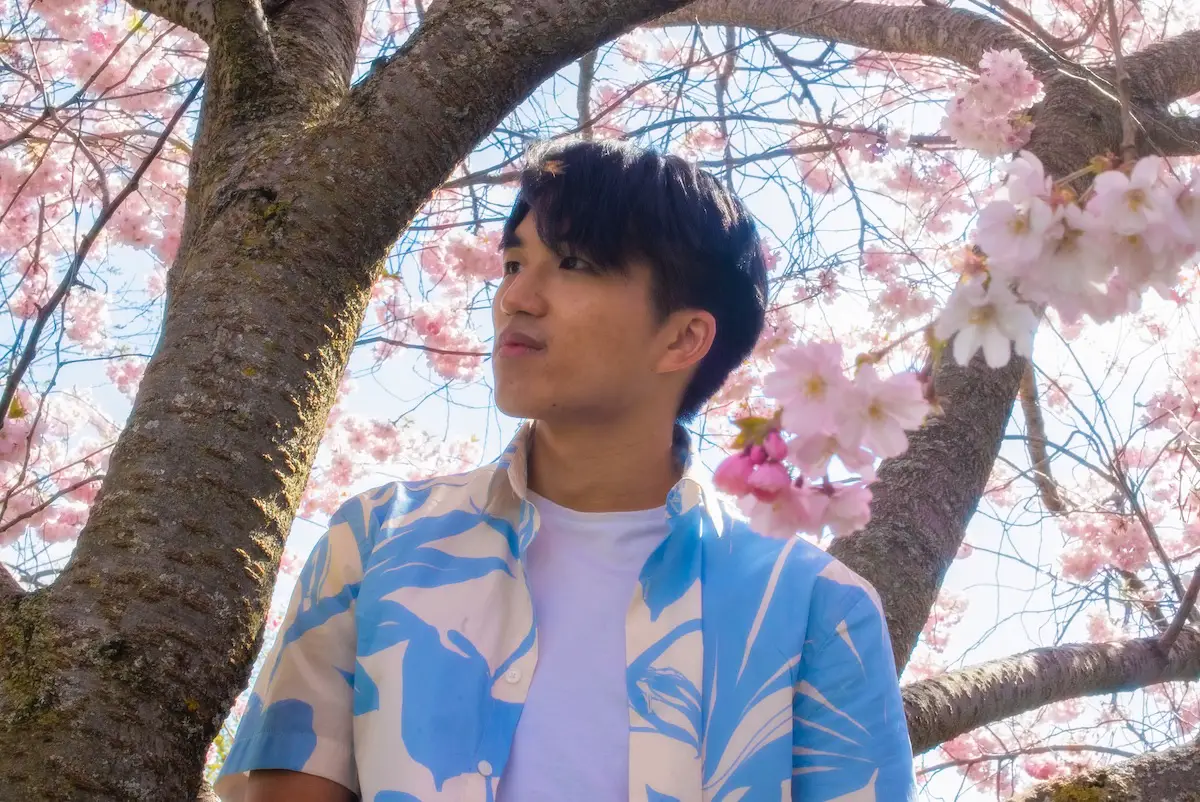
What is your heritage?
Korean
What is the significance of Asian American and Pacific Islander Heritage Month, for you?
Since forever, Asians are considered invisible to the public eye. Almost no representation in TV, movies, music, books, and overall media. Looking back, I had no one to look up to as a kid. I remember watching American Idol and I was disappointed time after time from the lack of representation. It sucks even more seeing non-Asian people play Asian characters in movies. I am happy to see that more and more people are celebrating this month. I’m looking forward to change!
How do you perceive or experience the relationship between music and your AAPI heritage and identity?
When you think of Asian artists living in Western Cultures, it’s hard to picture who they are. Just like the other mediums, we are invisible. Because of that, I think we as Asians artists have to be even more perfect or absolutely outstanding. At least for me, I feel like I have a certain duty to uphold by releasing the best music I could possibly make. It does give me a bit more pressure. Which is not a bad thing!
How do you feel the music industry can improve, when it comes to representation, inclusion, and diversity?
There’s a lot of room for improvement, and one area we are focused on as an organization is building a healthy pipeline of next gen Asian American executives in music.
Name one or two AAPI artists who have had a significant impact on you, and why they've had that impact.
We’re excited about the future of artists from all across the Asian diaspora – we love Rina Sawyama, Griff, kasai, Priya Ragu, REI AMI, Deb Never, spill tab, Audrey Nuna, Japanese Breakfast, Blood Cultures, keshi… there are so many exciting new names and faces out there making really dope music and we’re psyched to champion them all!
Lastly, what are you working on currently? Anything coming down the pipeline you’re excited to share?
Our organization is still in its infancy and we’re so excited to develop more compelling programs and create opportunities for Asian Americans in all areas of the music business to connect and form strong business and personal relationships.
•• ••
:: Jen Rim ::
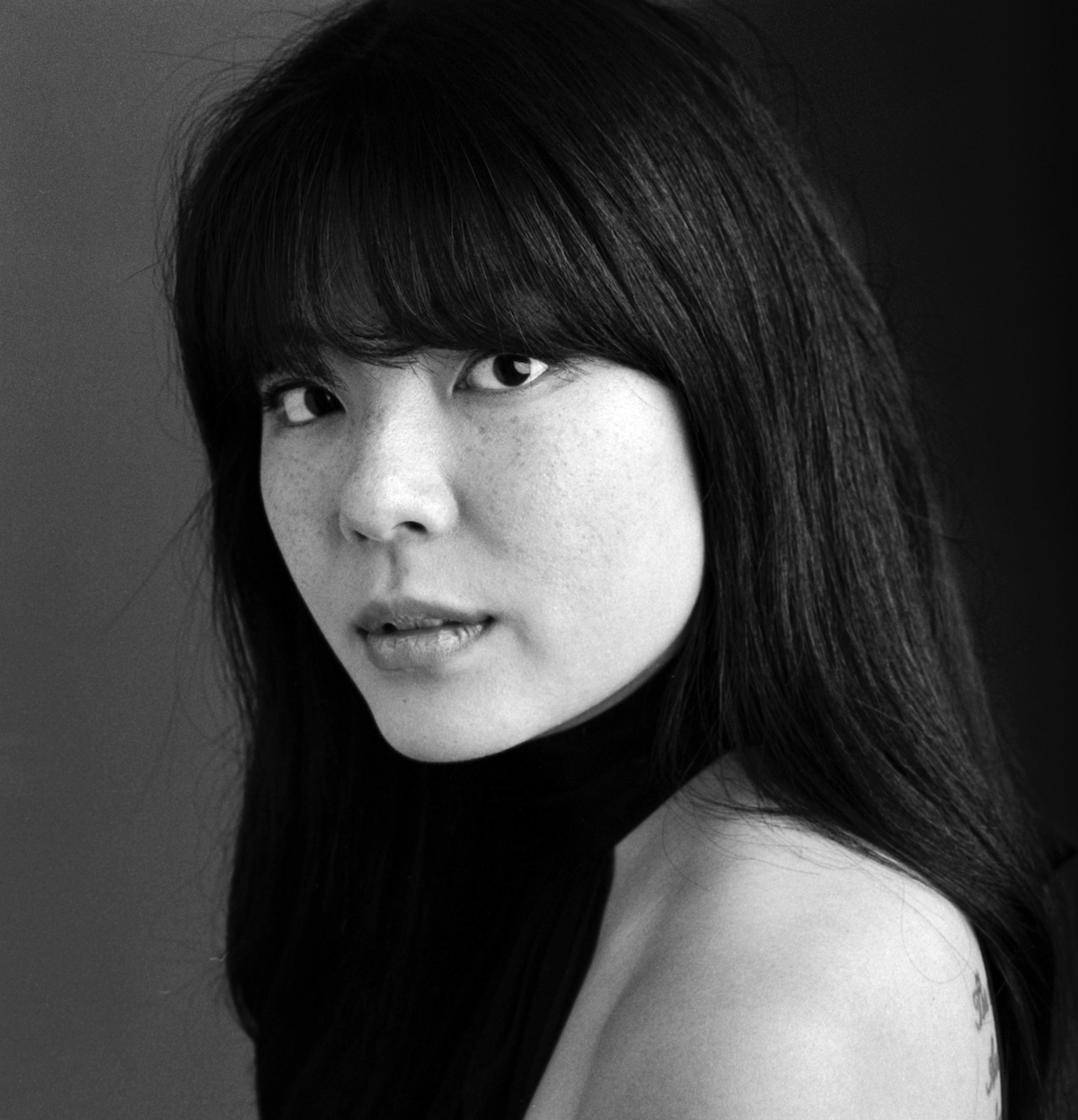
What is your heritage?
Korean American
What is the significance of Asian American and Pacific Islander Heritage Month, for you?
I hope it can be a moment of recognition by hearing people share their stories dealing with identity, experiences, and just life really. Perhaps it can be an opportunity where others could listen and see that we may have a common ground of ways we view life and the choices we make.
How do you perceive or experience the relationship between music and your AAPI heritage and identity?
I think I am just dipping my feet in the water by asking questions of what it means to be a Korean-American. I was honestly a bit embarrassed to admit that it took me a while to focus on this subject matter, especially something so big as talking about my identity. But I’m also glad it’s now because I feel like it’s the right time, personally. Music for me is a way to express and evoke emotions, thoughts, and feelings from experiences or situations of wanting to feel understood and connected. I hope that I will never limit myself in the way I create and write music just because I look a certain way.
Something I’m personally working on is to be more bold and not so polite to please others. I want to learn to say it as it is, the truth.
How do you feel the music industry can improve, when it comes to representation, inclusion, and diversity?
I think it’s been cool to see a group of Asian American artists use their platform to share about our community and culture. Whether it’s through music, film, food, or anything really, it’s beautiful to see the diversity of interests, passion, and the way of storytelling. I hear many ask why this is happening now when it’s been going on for so long and couldn’t agree more. But since we can’t change the past, I hope this is just the start. I am very much looking forward to more film and music coming from the AAPI community.
Name one or two AAPI artists who have had a significant impact on you, and why they've had that impact.
I can’t remember when I first heard of Yeah Yeah Yeahs, but I do remember being blown away by Karen O. Her charisma on stage you just cannot deny. I love the way she expresses herself with fashion, make up, and how she carries herself on stage. I unfortunately haven’t been to their live shows, but even watching virtually, there’s something so powerful she exudes that I can’t really explain..maybe some sort of liberation? One of my favorite songs is “Skeletons”. There’s something raw about it that you can hear her sing with her body and emotions. I can listen to it on repeat.
Lastly, what are you working on currently? Anything coming down the pipeline you’re excited to share?
I will be releasing my first single June 15th and debut EP in September! It took a couple years and the pandemic to write these songs, but it’s exciting to finally see them making their way out.
•• ••
:: Tim Atlas ::
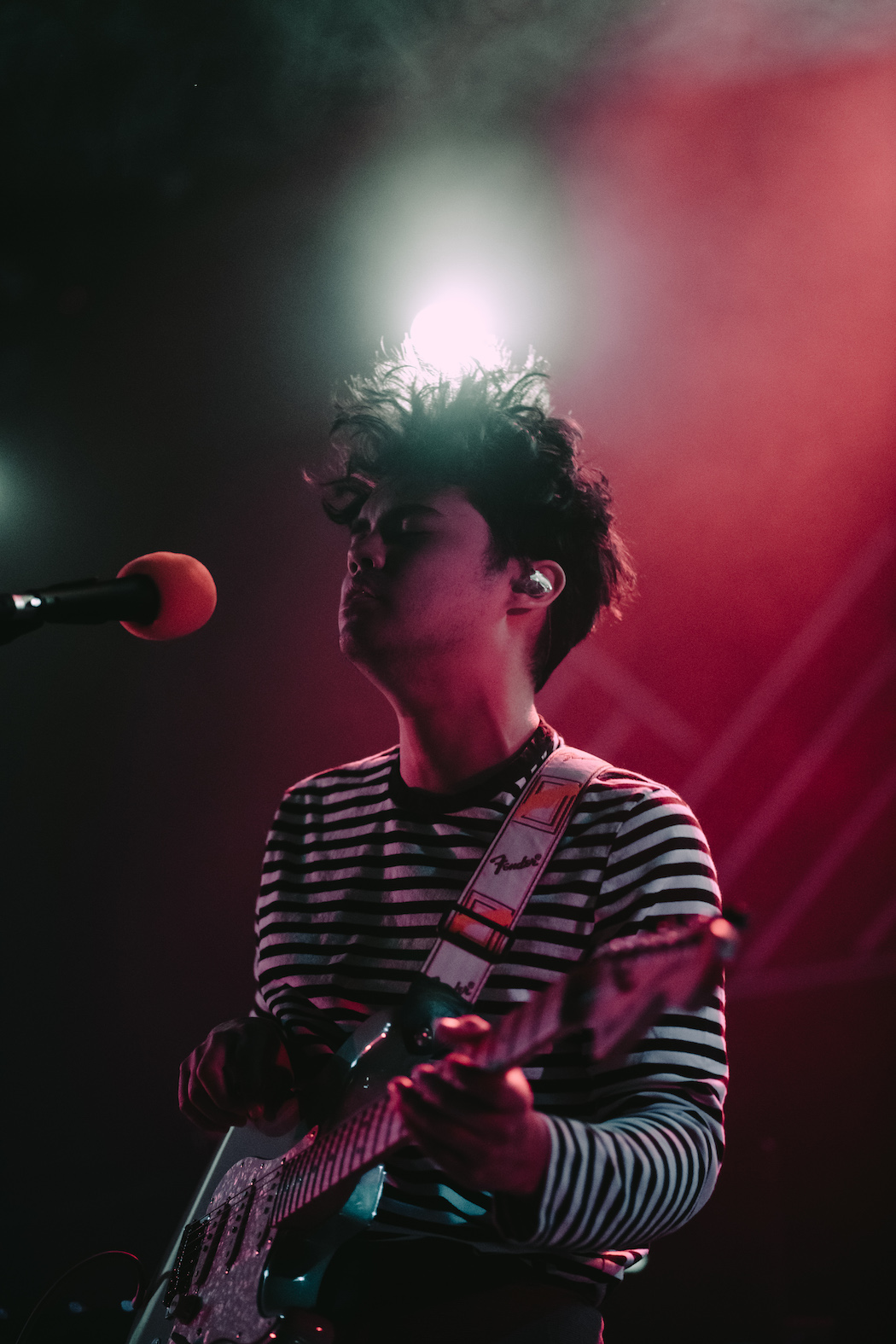
What is your heritage?
Filipino-American
What is the significance of Asian American and Pacific Islander Heritage Month, for you?
This month provides a moment of visibility, especially in an industry where we can sometimes feel invisible. I grew up in a world that didn’t always celebrate diversity, but I think now more than ever feels like people are embraced and loved for their differences in background.
How do you perceive or experience the relationship between music and your AAPI heritage and identity?
My relationship with music feels pretty rounded in terms of how much I was exposed to growing up. My Filipino mom’s music taste is rooted in power singers who wrote songs perfect for karaoke while my dad listened to country/rock & roll while my sister bumped brandy and tlc on the other side of the wall. I like to think that all of this played into the type of music I make and how I perceive it.
How do you feel the music industry can improve, when it comes to representation, inclusion, and diversity?
I think we can continue to tell the stories that aren’t being told. I think we as fans can do better to shed our perceptions of what an artist is supposed to look like. That alone would expose more people to better, genuine artists that don’t traditionally “look the part” but are actually given a chance.
Name one or two AAPI artists who have had a significant impact on you, and why they've had that impact.
Gonna go with the obvious Toro y Moi. He’s just an artist that does it all & makes it look and feel effortless and genuine. I want that for me someday.
Lastly, what are you working on currently? Anything coming down the pipeline you’re excited to share?
New single & music video at the end of May followed by my EP coming out in July 2021 in time for summer.
•• ••
:: Mindy ::

What is your heritage?
Korean American
What is the significance of Asian American and Pacific Islander Heritage Month, for you?
Amidst 2021 racial tensions in the U.S. and increasing hate crimes against Asians, AAPI month feels particularly important this year. (Or perhaps I just don’t feel like I’m sinking in the shadows as much as before, which I’m grateful for). While it pains me that it may have taken tragedy after tragedy for the greater community to take us seriously, I hold onto hope that our voices are beginning to be heard. It means a lot this month to catch glimpses of news and entertainment where I see Asians represented more. Growing up, that just wasn’t a reality. My dark hair, my eyes, and complexion wasn’t represented in media unless it was a stereotypical Asian with a heavy accent that played a waiter or karate star. These stereotypes were and are the building blocks of bullies and racism. As we’re seen more just as we are, (not just one dimensional characters), I feel a greater sense of pride in sharing my work as an artist. We’re not all invisible, quiet workers in the background. We’re not all just martial arts actors or crazy rich Asians.
How do you perceive or experience the relationship between music and your AAPI heritage and identity?
My relationship between music and my Asian American heritage is pretty painful and triggering. It is perhaps one of my deepest wounds as a musician; it continues to sadden me that we have so little representation on the American music charts. I struggle daily to do what I do, because there’s little to no precedent of major Asian musicians in America. As a daughter of Korean immigrants, taught to be submissive and to fall in line, joining an art rock band and doing late night shows in DIY warehouses across Los Angeles was a nightmare for my parents. Doing what I loved was an act of terror for my family, while many of my non-Asian friends were actually supported by their families! That struggle alone was so hard to bear at times. At times, I grasped for hope anywhere I could find it. I read the memoirs of Black artists like Gucci Mane, Taraji P. Henson, and Kevin Hart to learn about how they overcame their obstacles of drugs, family struggles, and racism. Ultimately, I learned that I just have to work twice as hard and twice as smart to get to where I want to.
How do you feel the music industry can improve, when it comes to representation, inclusion, and diversity?
The music industry as a whole could improve when it comes to representation by simply airing more diversity. As a producer, singer, and songwriter working in studios in Los Angeles and NY, I’ve seen firsthand how much the industry is still very dominated by white males. I have no beef with white males in particular; many of my closest friends and mentors are white and male. But when the movers and shakers of an entire industry are funneled through the lens of one viewpoint, entire generations are being oppressed with an incomplete picture of what’s artistically present in society. With greater diversity and inclusion, we can reach more depth, more nuance, more beauty, and more wholeness. Regardless, shit changes fast in the music industry. Every decade comes with radical shifts in how music technology and listeners engage. It’s exciting to see that not all decisions and control can be political or made through PowerPoint presentations in board meetings.
Name one or two AAPI artists who have had a significant impact on you, and why they've had that impact.
I’d have to say that Awkwafina is an incredibly inspiring artist and musician to me. Her talent, her grit, and dedication to her identity is incredible. She’s just so crazy hilarious and executes her work in unique ways. I discovered her many years ago when she was hosting a YouTube DIY talk show and had my best friend Jessica Lesaca as a guest. The setting was some old building in LA with an old desk that looked like it was found off a street. Her wit was undeniably wild and I thought to myself, “damn, she is crazy.” Looking back, her dedication to her craft was next level and I’m so proud of where she’s gone since then.
Lastly, what are you working on currently? Anything coming down the pipeline you’re excited to share?
I’m currently working on a solo music project under my first name “Mindy.” I have a new song and music video coming out at the end of this month on May 27th, 2021. I’ll be releasing my song “Am I Alive.” After years of working with others in bands, orchestras, and a variety of music organizations, I’m releasing work that’s completely my own vision. It’s what bleeds from my heart—dark electro dance music with a touch of weepy indie rock. I’m also in the middle of scoring a short art film directed by Adrian Pruett, cinematographer of the new film “Venus as a Boy” (which was just selected for the 2021 Tribeca film festival) and director for the show Red Table Talks with Jada Pickett Smith. His extensive experience in unscripted and scripted media plus deep psychological analysis of American issues helped me realize the visual language of my music. He also directed my first music video that will be out soon. I get emotional and laugh whenever I see the video so I hope others do too. I have an EP scheduled to be released at the end of July 2021 as well.
•• ••
:: Darro ::
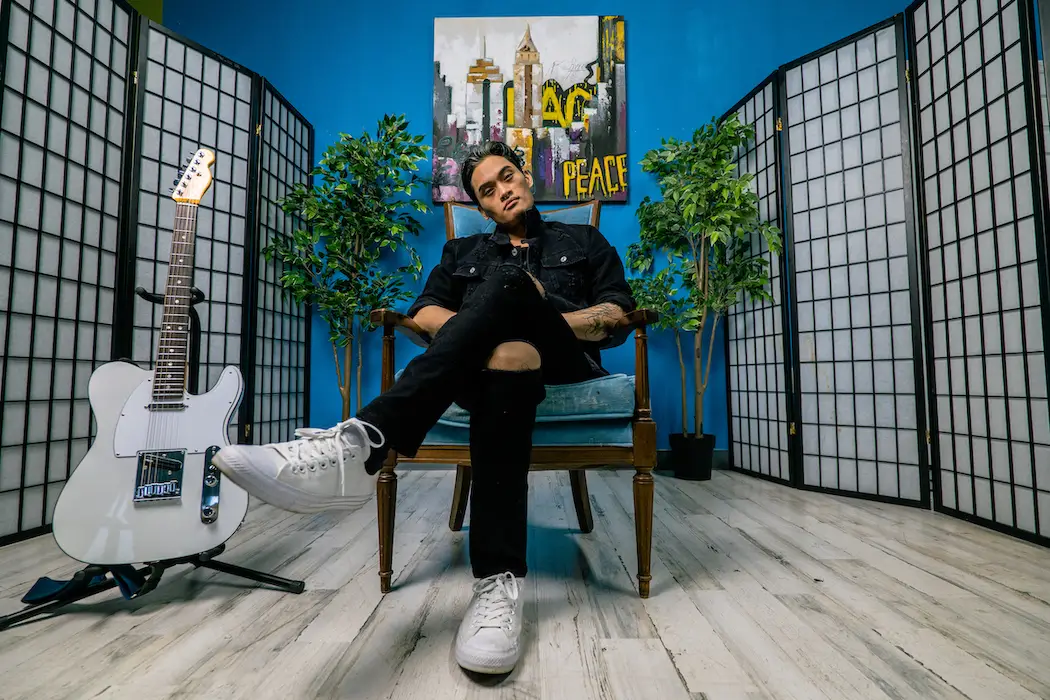
What is your heritage?
I am a first generation, Cambodian-American, my parents were sponsored to come to the United States sometime in the 70s after the Khmer Rouge Genocide, my dad worked as a slave in the fields and my mom was still an toddler at the time.
What is the significance of Asian American and Pacific Islander Heritage Month, for you?
To be honest, this AAPI Heritage month has never played a huge role in my life. My family didn’t (and still probably doesn’t) know about it nor do they celebrate it. It’s just May for them. They’re not necessarily connected to the culture, politics of ordinary USA because they’re so focused on trying to survive in the US.
How do you perceive or experience the relationship between music and your AAPI heritage and identity?
My heritage does impact my career a bit, but not necessarily the music itself. Usually when I describe my emo/pop-punk sound to others, they’re taken a bit back and consider it “white” music. And I can’t blame them, because the Emo and Pop-Punk community is largely white dominant. That’s not to say that there aren’t other Asian-Americans making waves in this genre, it’s just that we’re still very underrepresented and sometimes people focus more on the fact that on race more than the music itself and that can be frustrating.
How do you feel the music industry can improve, when it comes to representation, inclusion, and diversity?
I think that this generation of BIPOC artists need to be more uplifted. We grew up with practically zero representation in this genre and in spite of that, we decided to pursue music within this genre. That’s a testament to how moving music can be. If this current generation of BIPOC Punk artists were uplifted in the industry more, the next generation of BIPOC artists and musicians won’t have to grow up without role-models like we did.
Name one or two AAPI artists who have had a significant impact on you, and why they've had that impact.
This is really hard because there are hardly any that I can think of within the punk genre. But one AAPI artist who’s had a significant impact (and still does) is Simon Tam of The Slants. They’re the first all Asian-American Dance Rock band and they fought the Supreme Court in order to trademark their name. It’s an incredible story about taking control of your narrative that still inspires me. Simon regularly gives me mentoring advice and he’s had a huge impact on my recent career.
Lastly, what are you working on currently? Anything coming down the pipeline you’re excited to share?
We have a single dropping on May 7th called “Signing Out.” It’s the first song in a batch of songs that was produced by Kris Crummett (Dance Gavin Dance, Sleeping with Sirens) and I think they’re some of the best songs I’ve ever written. This particular song is about the night in the emergency room where I was diagnosed with a brain tumor. It’s filled with anxiety and fear, but also has a tinge of satire that is so very punk.
•• ••
:: Alex Hwang (Run River North) ::

What is your heritage?
Korean American
What is the significance of Asian American and Pacific Islander Heritage Month, for you?
I am Asian American, so every month is Asian American and Pacific Islander Heritage Month. The significance is to give opportunities for others to pause and see, listen, notice, enjoy, engage with the diverse heritage of being Asian American / Pacific Islander.
How do you perceive or experience the relationship between music and your AAPI heritage and identity?
Our music and our heritage and identity as AAPI is completely intertwined. One cannot exist without the other – whether it is right on the surface or something hidden in the sounds and lyrics and emotions.
How do you feel the music industry can improve, when it comes to representation, inclusion, and diversity?
I’m not sure. More of these? More opportunities for diverse acts to be seen and given chances to tell their stories.
Name one or two AAPI artists who have had a significant impact on you, and why they've had that impact.
Pop, Etc (used to be known as the Morning Benders). In college, I stumbled upon a music video and just seeing an Asian singing with a guitar and singing such a good song – it was incredible. At the time, YouTube was blowing up with other artists that were mainly doing cover songs and seeing the Morning Benders put out such incredible music and touring with other incredible bands – they were definitely part of the soil that sprouted the seeds of our band.
Lastly, what are you working on currently? Anything coming down the pipeline you’re excited to share?
We just released our first independent album in February (during the pandemic no less!) and we’re slowly starting to write more songs for an EP of sorts. We have a new song out now “Slow and Steady” and the single artwork is being showcased as one of the artists for LIFEWTR’s Unseen campaign. The artwork is done by longtime collaborator and fellow Korean-American Annie Seo (who also happens to be Sally’s cousin).
•• ••
:: Lisa Sonoda ::
What is your heritage?
Japanese / Chinese
What is the significance of Asian American and Pacific Islander Heritage Month, for you?
Overcoming racism is an ongoing process. You can pull all the weeds to make a beautiful garden, but they will keep growing back if you don’t keep a watchful eye.
AAPI month is a symbol of harmony- mentally, physically and spiritually. It reminds us to continue our healing journey of inclusivity, compassion, and oneness. We must continue to educate ourselves about our recent past to ensure future generations learn from past mistakes. Perfect for Spring Cleaning, this awareness during the month of May pushes us to realign our thoughts, actions and motives to that of positive progress. I am so grateful to be alive in a time where we are intentionally working towards awareness. Just one generation ago the US passed bigoted laws that isolated, excluded and discriminated against Japanese Americans. The fact that these heartbreaking laws ever get passed is a wake-up call to the inhumane laws that continue to be passed today. Plus the recent hate crimes and racial slurs make everything look grim, but things like AAPI heritage month bring me hope and reassurance that more change is just around the corner. Having a dedicated month to AAPI reinforces our journey to heal our collective soul and rise above ignorance and hate. It’s a vow to forge this path together, one step at a time.
How do you perceive or experience the relationship between music and your AAPI heritage and identity?
As an Asian American musician and a woman, I definitely feel like a minority. The few times I shared a stage with fellow AAPI women it always feels like a rarity but also a celebration. Imagine if White male musicians were the minority and they felt excited and surprised to be sharing the stage with another Caucasian male. It sounds absurd because we’re surrounded by that and we don’t know anything but our reality. When I see an Asian representation in music, movies, books, even commercials- I get that same feeling only because it does not happen that often. My mother said that growing up she only saw White male news reporters on black and white TV. Now there are women AND people of all (socially constructed) races! She always reminds me how much change has happened in just her lifetime.
Music allows me to express myself, like my taste in meditative soundscapes and my indie rock/pop sensibility to the world, but it also subconsciously signals to the world that people like me can do this too. There is space for me and everyone else, and everyone’s perspectives are of value too.
How do you feel the music industry can improve, when it comes to representation, inclusion, and diversity?
Let’s be real, the vast majority of sound engineers, recording engineers, studio owners, venue owners and musicians in general are male and not AAPI. I would love to be in a world where the professionals we encounter as musicians can be Asian American or female and it’s not an anomaly.
The music industry definitely needs more representation, inclusion and diversity. To be honest, I’ll be happy once the average layperson can easily list 10 Asian American musicians off the top of their head. The thought that most people would have trouble listing one or two is honestly scary because Asian Americans make up about 6% of the US population.
Also if people in the music industry can spell our Japanese band name correctly that’d be a good sign!
Name one or two AAPI artists who have had a significant impact on you, and why they've had that impact.
Dustin Wong & Takako Minekawa to me are like pioneers of sound and experiment. They are beyond unique. The first time I saw the duo live I was blown away by their precision and ingenuity making the wildest loops. As friends and down to earth people, their genuine hearts and friendly auras always make me feel warm, present and comforted. I love them! Dustin is Chinese and Japanese just like me, and Takako is Japanese!
Another AAPI artist that has really moved me is Meitei. His mixture of field recordings, samples and melodies conjure otherworldly soundscapes. He builds one of a kind, mysterious worlds that feel like a memory or vibration repeating in the back of your mind. It’s really intriguing. Both of these artists inspire me to make more music, turn anything into songs and experiment while continuing to be impactful.
Lastly, what are you working on currently? Anything coming down the pipeline you’re excited to share?
Our meditative pop band Sonoda has a new EP on it’s way! We’re still mixing what we recorded in the studio pre-pandemic, and we’re SO excited for that to come out. Our songs have evolved so much. Just being in a band feels like a bootcamp of sorts sometimes because of how much work it can be, especially in an industry and society that doesn’t really support artists and creative endeavors. Our last single, Point of View came out via Flexible / Terrible Records and that was one of our most chaotic songs yet. The positive reception we got from that gives us hope that we can continue to move and inspire friends and strangers alike. With just slightly less chaos, we hope the new sounds will continue to reach new listeners and bring some much needed solace and rejuvenation.
•• ••
:: Yueku ::
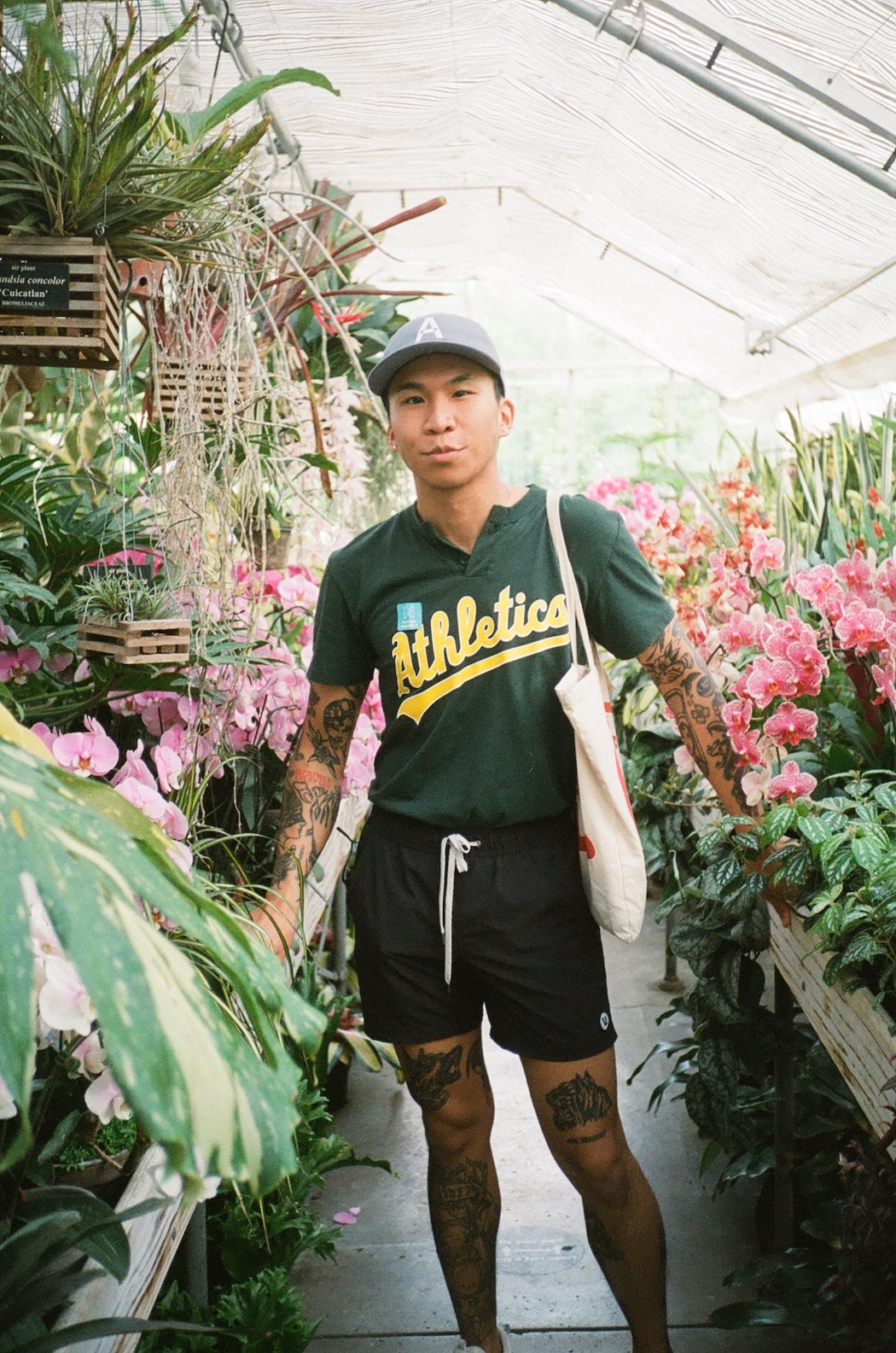
What is your heritage?
Chinese, Thai
What is the significance of Asian American and Pacific Islander Heritage Month, for you?
I’m proud of my parents coming to the U.S. to work & raise a family. This month celebrates that & any other experience shared with fellow AAPI. I’m happy to be doing what I do & seeing so many other AAPI do the same.
How do you perceive or experience the relationship between music and your AAPI heritage and identity?
Growing up, it was hard to find role models in entertainment who looked like me & it’d be awesome for future generations to not have that feeling. In the world of entertainment, I sometimes felt like an afterthought regarding representation. I’m hoping that with the internet & so many great AAPI artists, we could change that.
How do you feel the music industry can improve, when it comes to representation, inclusion, and diversity?
This is a great start. I think more opportunities like this, maybe some more playlisting that showcases AAPI artists. I’d just love for people to see that we’re making great things & to challenge the perception of how AAPI are viewed from stereotypes enforced by mainstream media for so many years.
Name one or two AAPI artists who have had a significant impact on you, and why they've had that impact.
Daphne Loves Derby is a band with an Asian American singer. Their vocalist, Kenny Choi, was the first person I saw in bands who was Asian American making music I loved.
Keshi, for a same reason. As I got older, I still found it difficult to find other AAPI artists making pop music & he was one of the first few I found.
Lastly, what are you working on currently? Anything coming down the pipeline you’re excited to share?
Currently working on my debut EP. I’m really excited to be putting out music as a new artist & I’m just excited share some new tunes. It’s really been keeping me going.
•• ••
:: Annie Scherer ::
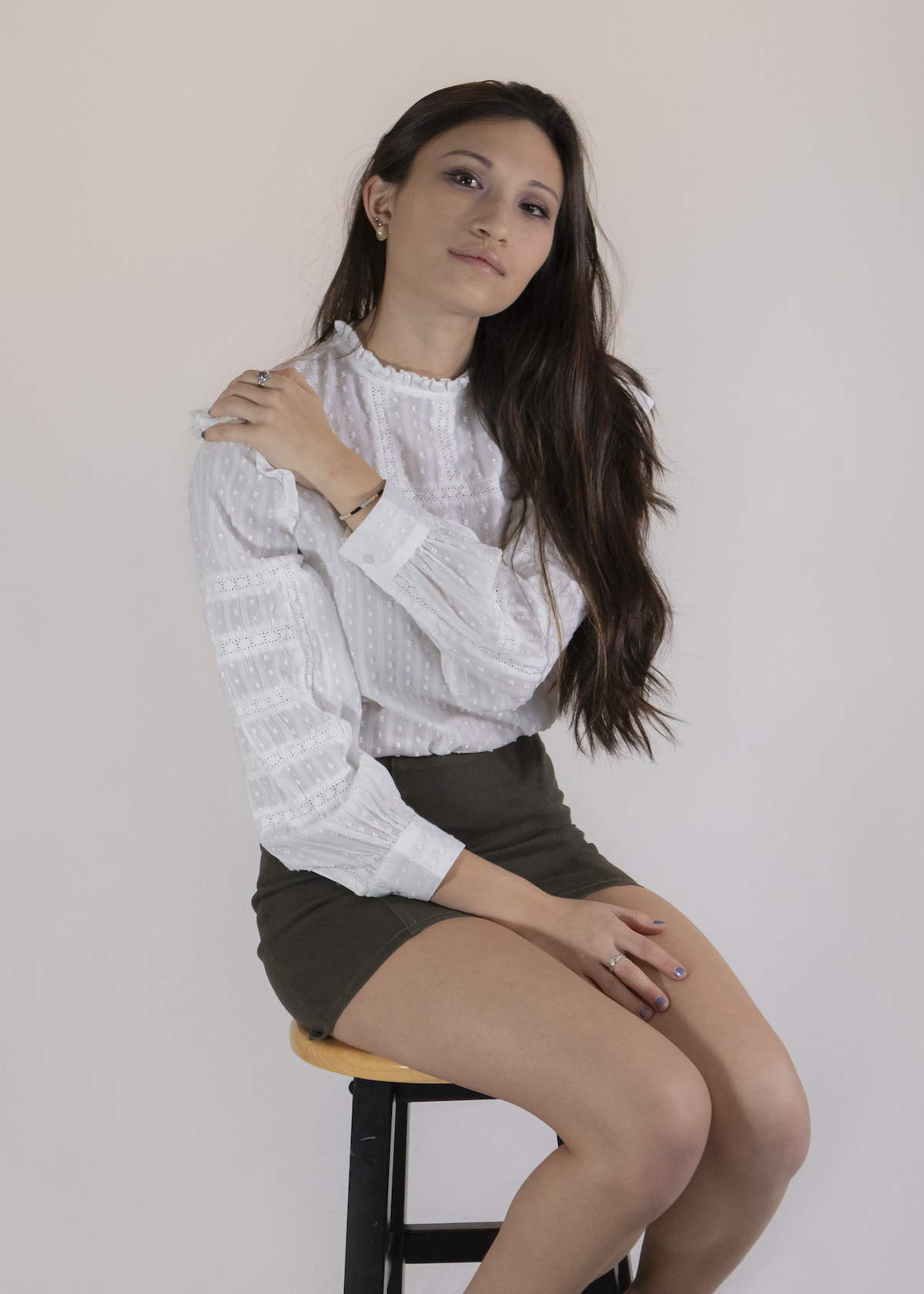
What is your heritage?
I am half Chinese, and half German
What is the significance of Asian American and Pacific Islander Heritage Month, for you?
As a granddaughter of two Chinese immigrants, it’s empowering to celebrate our roots and recognize the accomplishments we AAPIs have achieved. In a climate like todays, it’s important to acknowledge these successes. I am very proud of my heritage, and I strive to live up to the achievements my grandparents attained.
My grandparents grew up in a war before coming here. My grandmother was the daughter of a wealthy businessman in Shanghai, while, my grandfather grew up in extreme poverty. He wound up at Princeton despite his upbringing, and together they raised a family. I want to make them proud.
How do you perceive or experience the relationship between music and your AAPI heritage and identity?
Since there are so few Asian-Americans in music, I feel a strong responsibility to represent us. I hope that through my songs, I can inspire more AAPI inclusion in entertainment.
How do you feel the music industry can improve, when it comes to representation, inclusion, and diversity?
As a whole, the industry is lacking diversity in every department. From singer/songwriters to producers, to management positions, not many AAPIs are represented. I hope that through music’s sonic experience, we can move away from these current boundaries.
Name one or two AAPI artists who have had a significant impact on you, and why they've had that impact.
I’ve recently become a fan of Mitski. After hearing her song “Nobody,” I dove into her discography and read about her career. It’s inspiring to learn about her growth from an independent artist, to signing record deals and opening for Lorde. As an independent artist myself, I understand the hard work that went into her early career endeavors. I would love to strike success like her.
Lastly, what are you working on currently? Anything coming down the pipeline you’re excited to share?
Since releasing my debut album, I’ve released a music video and I have another one in the works. I have always been interested in film and film editing, so these were fun to create. I try not to jump the gun, but I’ve also already started recording my next project. I’m excited to see where this one will go.
•• ••
:: Julian Saporiti (No-No Boy) ::

What is your heritage?
Vietnamese / Italian American
What is the significance of Asian American and Pacific Islander Heritage Month, for you?
It’s complicated. I study Asian American culture for my PhD and the more I get into the weeds, the more I realize how, growing up in Tennessee, I really don’t relate to the predominate discourses and narratives which have been put out there by a lot of Asian American writers and academics who have defined this very diverse group mostly from their East Asian, college educated, west coast perspectives. That said, representation does matter and I’m super grateful to be able to use music and media platforms to tell stories about a broader “Asian American” experience through my songs. Things like this feature are a nice way to learn about other individuals who happen to have ancestry from the continent of Asia and if it takes a month to spur it along, that’s great.
How do you perceive or experience the relationship between music and your AAPI heritage and identity?
My music with No-No Boy reflects the Asian American and transpacific stories I’ve uncovered in my research, so it’s hand in hand. Jazz bands which formed in Japanese Internment camps, acid rock in southeast asia, punks in New York’s Chinatown, my latest album is travelogue and history book collecting scraps to piece together some kind of musical ancestry or lineage.
How do you feel the music industry can improve, when it comes to representation, inclusion, and diversity?
I think we’re on the right path and having grown up in the south in the 90s, I don’t take for granted how quickly things have progressed. That said, we’re sort of at this awkward stage where, in my own experience, I feel like I get half my gigs or features because people I can be diversity wallpaper for an event or story. But that’s the moment we’re in and hopefully nuance and depth become part of the norm in the years to come.
Name one or two AAPI artists who have had a significant impact on you, and why they've had that impact.
The CBC Band was one of the most mind blowing psychedelic rock bands who performed in the Saigon scene when my mom was coming up in the late 60s and early 70s and are sort of a stand in for this amazing southeast Asian rock scene which took the music of their occupiers, localized it and contributed something new and unique to the artform. In the way that Fela or Marley took the artistic forms and tools of the imperial forces and created liberating moments of joy and music, the CBC band and their contemporaries in Vietnam and Cambodia did a similar thing. They still gig in Houston today.
Lastly, what are you working on currently? Anything coming down the pipeline you’re excited to share?
I’m pretty stoked to share the film we made in lockdown “Hold Me Lover, Tell Me Lies” which accompanies the new album 1975.
•• ••
:: Warren Hue ::
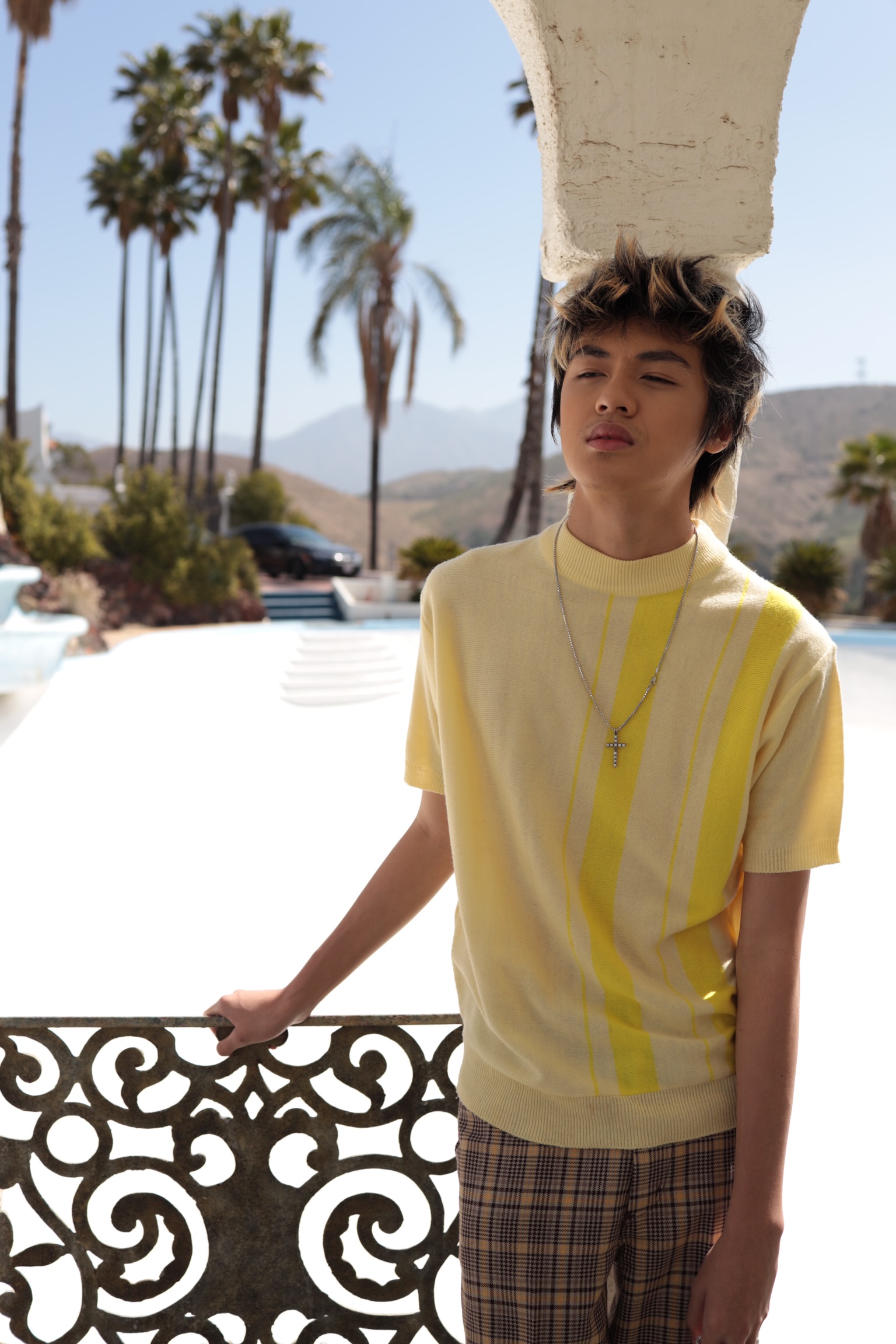
What is your heritage?
Indonesian / Chinese
What is the significance of Asian American and Pacific Islander Heritage Month, for you?
It’s significant for me to see a whole community supporting each other, especially during these times. It shows our world, where we came from and the history of Asian culture. I’m definitely proud to be Asian.
How do you perceive or experience the relationship between music and your AAPI heritage and identity?
My music has always been influenced by American hip hop and culture. I grew up in Indonesia my whole life and I only had the internet to rely to when it comes to music so I think the environment I grew up in May have affected the way I write or rap songs. Being an Asian kid that loved hip hop so much, gave me even more courage to become an artist and do great things. I get to share my perspective growing up and I feel like it’s unique.
How do you feel the music industry can improve, when it comes to representation, inclusion, and diversity?
I feel like it’s getting better now when it comes to representation. I mean Asian artists in general don’t really shine in the spotlight too often and maybe it’s because we just don’t get the right play-listing, but other than that I feel like we’re in a good spot.
Name one or two AAPI artists who have had a significant impact on you, and why they've had that impact.
Rich Brian and Joji. Rich Brian had always inspired me to become an artist especially him being from Indonesia. I thought what he did was super unique interesting and fresh so it gave me courage to be confident with my music. I’ve always watched joji since his internet era and seeing him become who he is now is really inspiring. Joji again is very unique and he sticks to his craft no matter what, which is super dope.
Lastly, what are you working on currently? Anything coming down the pipeline you’re excited to share?
I’m currently working on an 8 song album that I’m super excited to share. It’s gonna be my first debut project from 88rising and I couldn’t be more thankful.
•• •• •• ••
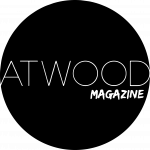
Connect to Atwood Magazine on
Facebook, Twitter, Instagram
Discover new music on Atwood Magazine
:: Celebrating AAPI Heritage ::
 follow our AAPI Heritage Month playlist on Spotify
follow our AAPI Heritage Month playlist on Spotify 

